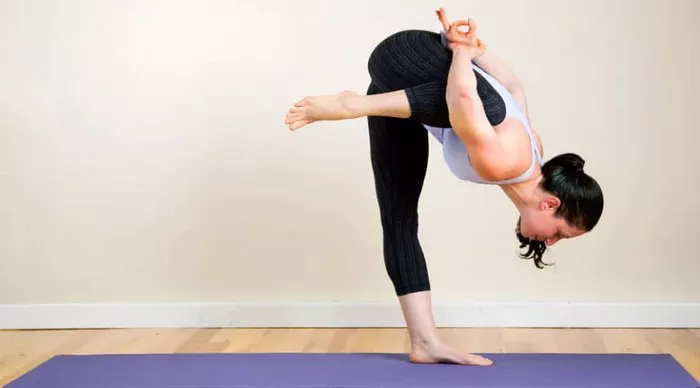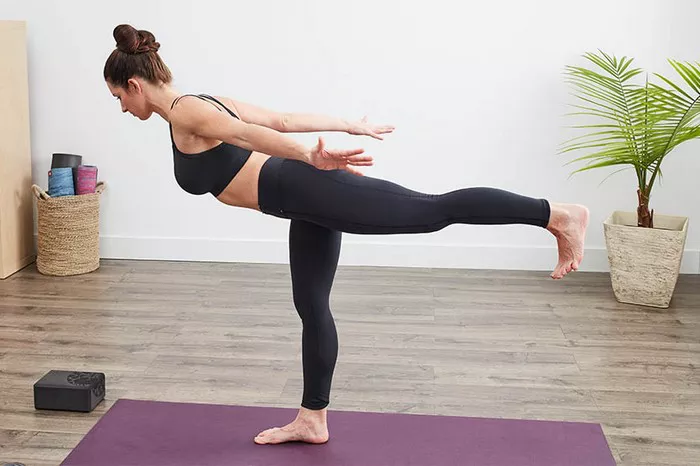Yoga has gained immense popularity in recent years. It is no longer just a form of exercise; it is a way of life for many. The practice combines physical postures, breathing techniques, and meditation. This unique combination offers numerous benefits, making yoga a holistic approach to well-being. Many people are drawn to yoga for various reasons, such as improving flexibility, building strength, and reducing stress. But what is yoga exercise really good for? Understanding the full range of benefits can help you appreciate this ancient practice.
In this article, we will explore the various advantages of yoga. We will discuss how it positively impacts physical health, mental well-being, and emotional stability. Each section will provide insights into specific benefits, supported by research and expert opinions. Yoga is more than just a workout; it fosters a deeper connection between the mind and body. Whether you are a beginner or an experienced practitioner, the insights shared in this article can enhance your yoga journey and promote a healthier lifestyle.
Physical Benefits of Yoga
One of the primary reasons people practice yoga is to improve their physical health. Regular yoga practice can lead to numerous physical benefits. These include increased flexibility, improved strength, and better posture. Many people experience stiffness and tension in their muscles due to everyday activities. Yoga helps alleviate this tension by promoting flexibility. Poses like downward dog and pigeon stretch various muscle groups, helping to release tightness.
In addition to flexibility, yoga also builds strength. Many yoga poses require you to support your body weight in different ways. This helps strengthen muscles, particularly in the core, arms, and legs. Poses like plank and warrior require balance and control, engaging multiple muscle groups simultaneously. Improved strength from yoga can enhance your performance in other physical activities. Additionally, practicing yoga can help improve your posture. Many people struggle with poor posture due to prolonged sitting or standing. Yoga encourages body awareness and alignment, promoting a healthy posture throughout daily activities.
Mental Benefits of Yoga
Yoga is known for its ability to calm the mind and reduce stress. Many people experience high levels of stress in their daily lives. Yoga provides a valuable tool for managing stress effectively. The combination of deep breathing and mindful movement helps activate the relaxation response in the body. This response lowers heart rate and reduces cortisol levels, leading to a sense of calm.
Practicing yoga regularly can also enhance mental clarity and focus. Many yoga poses require concentration and mindfulness. This focus on the present moment can translate into improved concentration in everyday tasks. Furthermore, yoga encourages a sense of inner peace. The meditative aspect of yoga allows practitioners to cultivate self-awareness and acceptance. As you become more attuned to your thoughts and feelings, you may find it easier to manage negative emotions and cultivate a positive mindset.
Emotional Benefits of Yoga
Yoga is not just a physical practice; it also profoundly affects emotional well-being. Many practitioners report feeling more balanced and emotionally resilient after regular yoga sessions. One of the primary emotional benefits of yoga is its ability to promote emotional release. Many people carry emotional tension in their bodies, leading to feelings of anxiety or sadness. Yoga encourages the release of these pent-up emotions, allowing practitioners to feel lighter and more at ease.
Moreover, yoga fosters a sense of community and connection. Group yoga classes create an environment of support and understanding. Being part of a yoga community can provide emotional support and a sense of belonging. This connection can significantly impact mental health, especially for those who may feel isolated or alone. The sense of community built in yoga classes can lead to lasting friendships and support systems, enhancing overall emotional well-being.
Yoga and Stress Relief
Stress is a common issue faced by many individuals today. The demands of modern life can lead to overwhelming feelings of pressure and anxiety. Yoga offers effective techniques to combat stress. The practice focuses on breath control, which plays a vital role in managing stress levels. Deep, intentional breathing activates the body’s relaxation response, helping to counteract the stress response.
Additionally, yoga promotes mindfulness. Mindfulness involves being fully present in the moment, which can reduce anxiety about the past or future. When you focus on your breath and movements during yoga, you learn to let go of distractions and worries. This practice of mindfulness can carry over into daily life, helping you respond to stressors more calmly and effectively.
Yoga and Better Sleep
Quality sleep is essential for overall health. Many people struggle with insomnia or poor sleep quality. Yoga can help improve sleep patterns and promote restful sleep. Certain yoga poses are particularly beneficial for relaxation and preparing the body for sleep. Poses like child’s pose and legs-up-the-wall help calm the nervous system and release tension.
Moreover, the relaxation techniques learned in yoga can be applied before bedtime. By incorporating deep breathing and gentle stretches into your nighttime routine, you can signal to your body that it is time to wind down. Many practitioners report that regular yoga practice improves their sleep quality, leading to increased energy and focus during the day.
Yoga and Enhanced Focus
In today’s fast-paced world, maintaining focus can be challenging. Distractions are everywhere, making it difficult to concentrate on tasks. Yoga helps enhance focus and concentration through its mindful approach. Each pose requires attention and awareness, helping practitioners develop concentration skills.
The practice of meditation, often integrated into yoga classes, further supports improved focus. Meditation encourages a calm mind and sharpens mental clarity. As you learn to quiet the mind during meditation, you can carry this focus into other areas of your life. Many individuals find that regular yoga practice leads to increased productivity and better decision-making skills.
Yoga for Pain Relief
Many people suffer from chronic pain due to conditions like arthritis or back pain. Yoga can serve as an effective complementary therapy for managing pain. The gentle stretching and strengthening involved in yoga can help alleviate tension in the muscles and joints. Many poses focus on areas commonly affected by pain, promoting relief and increased mobility.
Research has shown that yoga can reduce pain levels and improve the overall quality of life for individuals with chronic pain conditions. The mind-body connection fostered through yoga can also change the perception of pain. By promoting relaxation and mindfulness, yoga helps individuals manage their pain more effectively.
Yoga and Heart Health
Heart disease is a leading cause of death worldwide. Regular physical activity, including yoga, can significantly benefit heart health. Yoga helps lower blood pressure and improve circulation, both of which are vital for cardiovascular health. The emphasis on deep breathing during yoga can also enhance lung capacity, supporting overall heart function.
Certain yoga styles, such as restorative or gentle yoga, can be particularly beneficial for those with heart conditions. These styles focus on relaxation and stress reduction, promoting heart health holistically. Additionally, yoga encourages healthy lifestyle choices, including balanced nutrition and regular exercise, further supporting cardiovascular health.
Yoga for Weight Management
Maintaining a healthy weight is essential for overall well-being. Yoga can play a valuable role in weight management. While it may not burn as many calories as high-intensity workouts, yoga promotes mindful eating habits. The practice encourages body awareness and self-acceptance, helping individuals develop a healthier relationship with food.
Certain styles of yoga, such as power yoga or vinyasa, provide a more vigorous workout. These styles can aid in calorie burning and support weight loss goals. Additionally, yoga promotes stress reduction, which can prevent emotional eating. By managing stress levels, individuals may find it easier to make healthier food choices.
Yoga and Improved Balance
Balance is crucial for overall physical health, especially as we age. Many yoga poses focus on stability and coordination, helping to improve balance. Poses like tree pose and warrior III challenge the body’s balance, engaging core muscles and promoting stability.
Improved balance is essential for injury prevention. Falls can lead to serious injuries, particularly in older adults. Regular yoga practice can enhance proprioception, which is the body’s ability to sense its position in space. This increased awareness of body position helps prevent falls and injuries.
See also: Transformative Journey: How Yoga Changed My Life
Yoga and Mind-Body Connection
One of the most profound benefits of yoga is the development of a stronger mind-body connection. In today’s fast-paced world, many people disconnect from their bodies due to stress or busyness. Yoga encourages individuals to tune into their bodies and listen to their needs. This heightened awareness promotes self-care and mindfulness in daily life.
Through yoga, practitioners learn to recognize physical sensations, emotions, and thoughts without judgment. This practice of non-judgmental awareness fosters self-acceptance and compassion. As individuals become more in tune with their bodies, they may find it easier to make choices that promote overall health and well-being.
Conclusion: Embracing the Benefits of Yoga
In conclusion, yoga is a powerful practice that offers a multitude of benefits for physical, mental, and emotional well-being. From improving flexibility and strength to promoting relaxation and emotional resilience, yoga has something to offer everyone. By embracing the principles of yoga, individuals can cultivate a healthier lifestyle and enhance their overall quality of life.
Whether you are new to yoga or have been practicing for years, understanding the benefits can deepen your appreciation for this ancient practice. Incorporating yoga into your routine can lead to profound changes, both on and off the mat. As you explore the various aspects of yoga, you may find that it becomes an integral part of your journey towards better health and well-being.
You Might Be Interested In
Transforming Through Movement: How Yoga Changes Your Body
Is Yoga Dangerous? Knowing the Risks and Benefits of Practice























